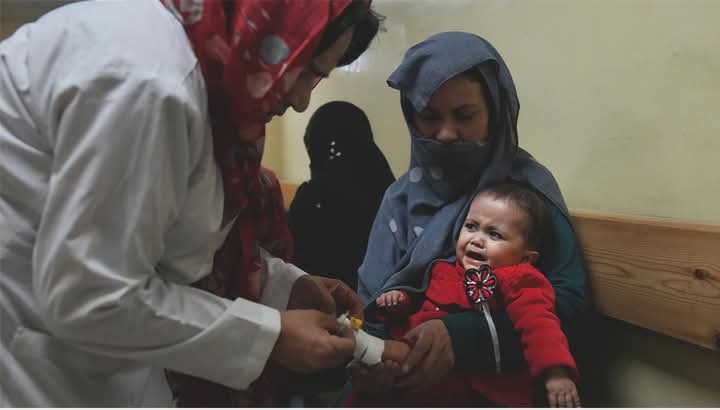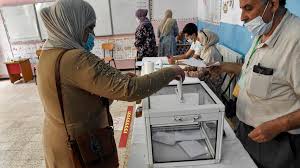By Adeyemi Adekunle
The United Nations has issued a stark warning that the Taliban’s latest decision to bar female students from pursuing medical education will exacerbate Afghanistan’s already dire humanitarian crisis, described as the second-worst globally after Sudan. The move is expected to significantly undermine health care access for Afghan women and girls, further endangering an already vulnerable population.
Addressing a quarterly meeting of the U.N. Security Council on Thursday, Tom Fletcher, U.N. Undersecretary-General for Humanitarian Affairs and Emergency Relief Coordinator, highlighted the grave implications of the Taliban’s directive. “This ban could inflict serious and lasting damage on health care for Afghan women and girls,” Fletcher stated, warning that maternal and neonatal mortality rates, already among the highest in the world, could see a dramatic increase.
Earlier this month, Taliban health authorities issued a directive instructing public and private medical institutions to halt the enrollment of female students and bar them from completing semester examinations.
However, the Taliban allowed a 10-day window for female students to complete ongoing exams, a move widely seen as a limited concession.
Fletcher noted that one-third of Afghan women already give birth without professional medical assistance, while maternal complications claim the life of a woman every two hours. “Preventing more than 36,000 midwives and 2,800 nurses from entering the workforce over the next few years will lead to catastrophic consequences for maternal health,” he said.
The U.N. undersecretary-general’s remarks come at a critical juncture as the Taliban continues to tighten its grip on Afghan society with increasingly restrictive policies, particularly targeting women and girls.
The ban on female medical education is the latest in a series of edicts enacted since the Taliban returned to power in August 2021, after the withdrawal of U.S. and allied forces.
‘Systematic Erasure of Women and Girls’
In a virtual address to the Security Council, Roza Otunbayeva, head of the U.N. Assistance Mission in Afghanistan (UNAMA), urged the Taliban to reconsider their ban. She described the edicts as part of a systematic effort to erase women and girls from public life.
“It is now nearly 1,200 days since girls have had access to formal education beyond the sixth grade,” Otunbayeva said. “Women and girls are facing a progressive erasure from almost all walks of life.”
She expressed deep concern over the Taliban’s stringent enforcement of the Promotion of Virtue and Prevention of Vice law (PVPV), which has further restricted women’s freedom of movement. Women are now prevented from traveling without a male guardian, even for short distances, and face barriers to accessing health care.
Otunbayeva also highlighted the expanding role of Taliban morality police, who now enforce policies on men’s grooming, including bans on Western-style haircuts and the shaving of beards. “These measures have no place in a modern society seeking reintegration into the global community,” she added.
International Condemnation
The Taliban’s policies drew sharp criticism from the United States. Linda Thomas-Greenfield, U.S. ambassador to the U.N., delivered a scathing rebuke, calling the ban on female medical education a “death sentence” for Afghan women who need life-saving medical treatment.
“How will women’s health care needs be met in the future if there are no qualified women doctors, nurses, dentists, or midwives?” Thomas-Greenfield asked. “And male doctors are not allowed to treat women.”
She further condemned the Taliban’s actions as “sick and heartless,” emphasizing the devastating impact on Afghan families. “These men — the Taliban — are sentencing their mothers, sisters, wives, and daughters to die if they become ill. This is not cultural, and it’s not religious. It is unfathomable.”
The U.S. envoy underscored the need for any international engagement with the Taliban to be conditioned on a broader dialogue on human rights and a clear political roadmap aligned with U.N. resolutions.
Dire Humanitarian Consequences
The humanitarian consequences of the Taliban’s policies cannot be overstated. Afghanistan is already grappling with a catastrophic economic collapse, widespread hunger, and limited access to essential services.
The country ranks among the worst globally for maternal and child health, and further disruptions to the health care sector could lead to a humanitarian breakdown.
Health experts have voiced concerns that the exclusion of women from medical education will exacerbate the shortage of female medical professionals, a critical issue in a society where cultural norms prevent many women from seeking care from male doctors.
The Taliban has already imposed restrictions in several provinces, barring male doctors from treating female patients altogether.
“For a country where preventable maternal deaths occur every two hours, the Taliban’s decision is an assault on women’s health,” said a health care worker in Kabul, who spoke anonymously for fear of retribution. “We were already struggling with a shortage of female doctors, and this decision will cripple the system further.”
Shrinking Space for Women and the Media
Otunbayeva also raised alarms about the shrinking space for public debate and media freedoms under Taliban rule. “Restrictions on the media are widening,” she said, noting that journalists face increasing censorship and intimidation.
She pointed to the Taliban’s deliberate efforts to stifle discussion on issues like women’s rights, describing it as a critical setback for civil society in Afghanistan. “The space for public debate continues to shrink, depriving the Afghan people of a voice,” she said.
Taliban’s Justification and International Frustration
The Taliban government, which remains unrecognized by any country and lacks representation at the United Nations, has consistently defended its policies as being in line with Sharia law and local customs.
Despite mounting international condemnation, Taliban leaders remain resolute in their decisions, dismissing concerns raised by the global community.
Observers argue that while the international community continues to pressure the Taliban, engagement remains critical to prevent Afghanistan from becoming further isolated. Otunbayeva defended UNAMA’s engagement with the Taliban, emphasizing that isolation will only worsen the country’s plight.
“Some say engagement has not worked because these decisions keep coming despite international condemnation,” she admitted. “But pressure and condemnation alone are not the solution. Without principled engagement, isolation will deepen Afghanistan’s crisis.”
Looking Ahead
The Taliban’s ban on female medical education represents more than just a policy decision; it is a reflection of the systemic oppression women face under their rule. Humanitarian organizations warn that unless immediate action is taken to reverse these edicts, the consequences will be catastrophic for Afghan women and girls.
The United Nations remains committed to advocating for the rights of Afghan women and fostering dialogue to ensure Afghanistan’s reintegration into the international community. However, the path forward is fraught with challenges, as the Taliban’s entrenched stance leaves little room for compromise.
As the global community grapples with how to address Afghanistan’s worsening crisis, the voices of Afghan women and girls grow fainter, silenced by a regime intent on erasing them from public life. The U.N.’s warning serves as a grim reminder of the human cost of these policies — and the urgent need for collective action to restore hope to the people of Afghanistan.
This report draws on the latest developments from the U.N. Security Council meeting and the ongoing humanitarian crisis in Afghanistan.




